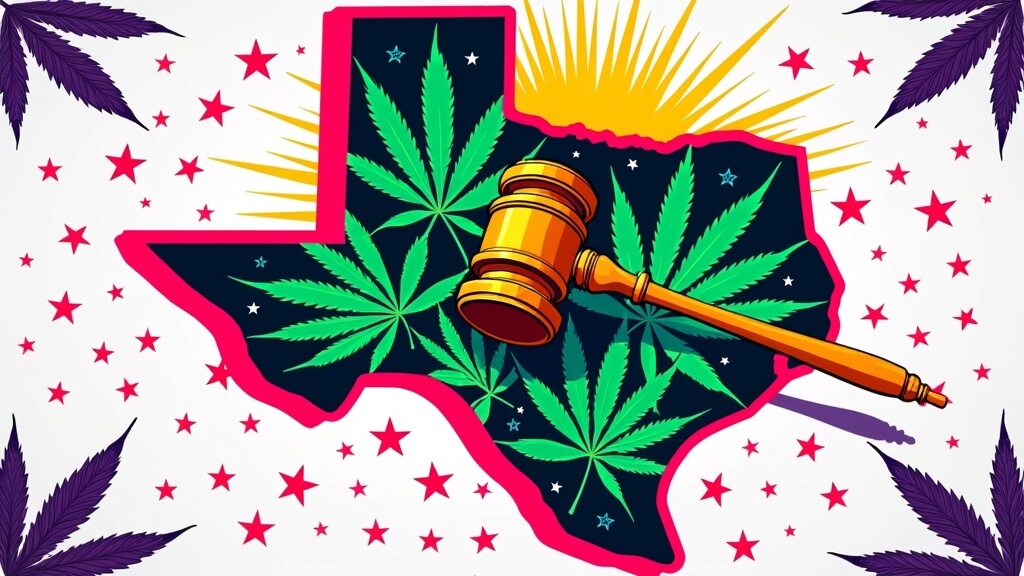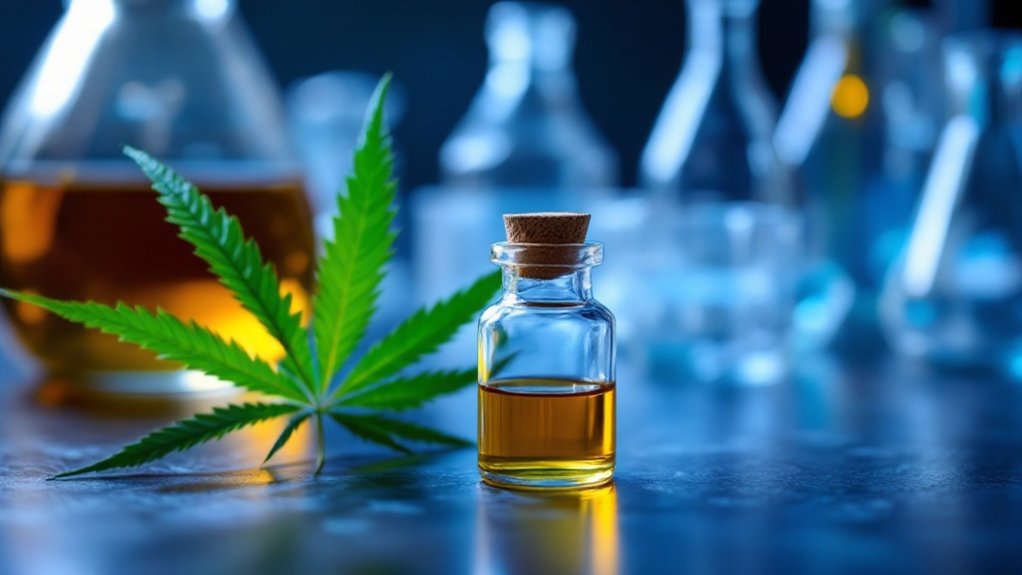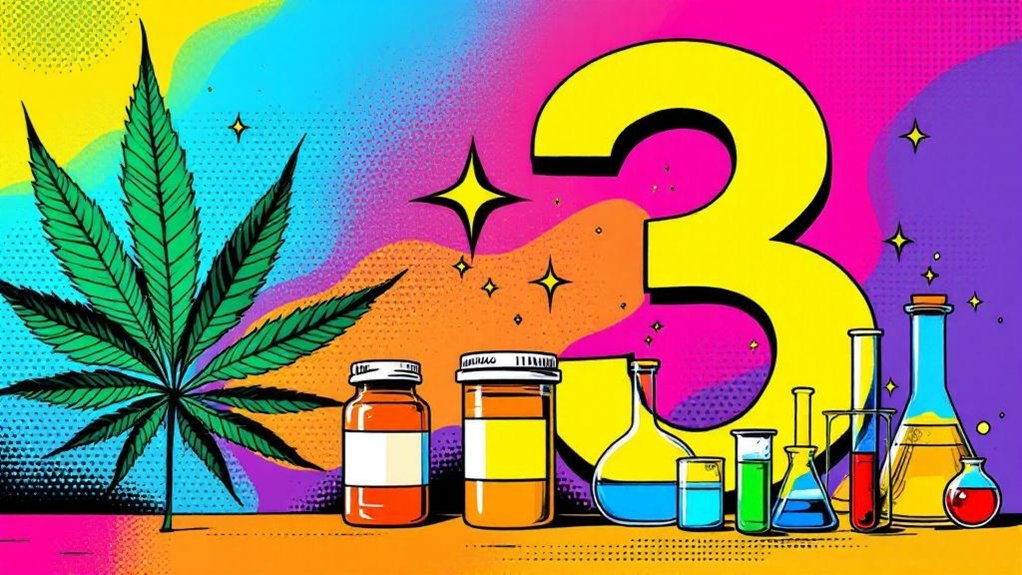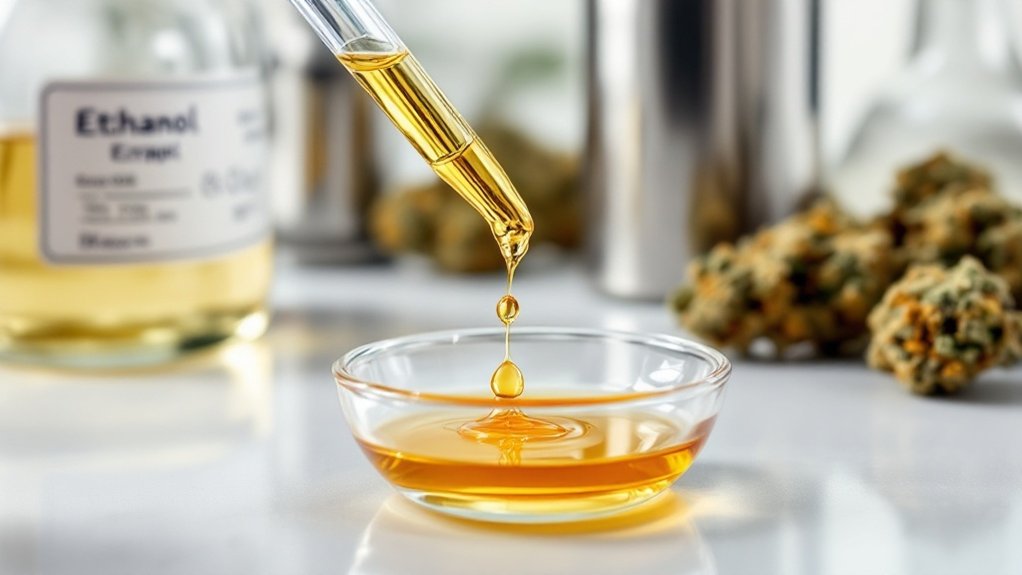THCA currently remains legal in Texas, thanks to a technical loophole distinguishing hemp from marijuana. Products must contain less than 0.3% Delta-9 THC to stay on the right side of the law. But, Texas lawmakers are gunning for a complete ban with Senate Bill 3, which passed with a decisive 24-7 vote in March 2025. The regulatory landscape is shifting faster than smoke in a breeze.
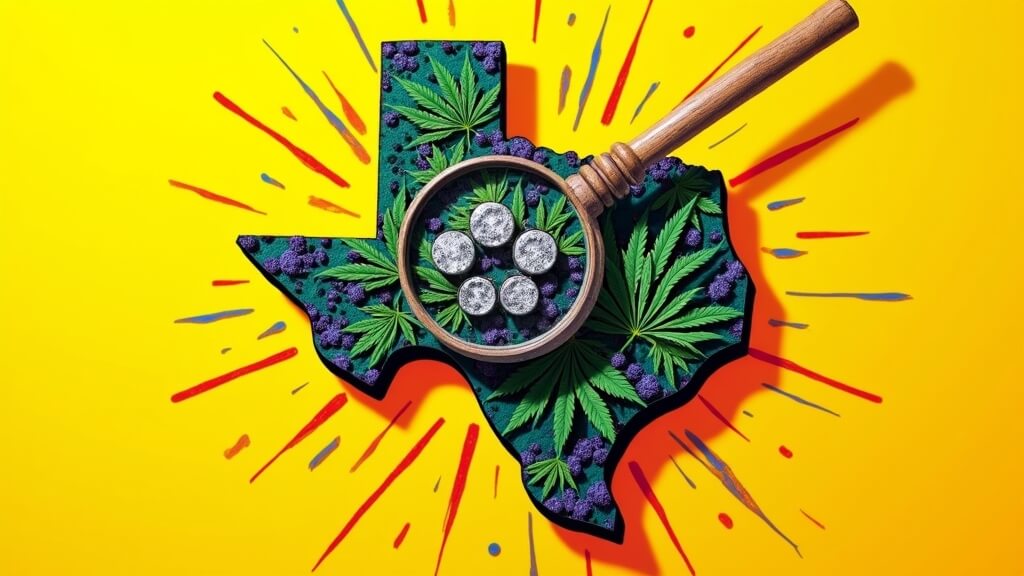
Despite ongoing legislative battles, THCA remains legal in Texas—for now. Products containing this cannabis compound can legally be sold as long as they contain less than 0.3% Delta-9 THC on a dry weight basis—a distinction made possible by Texas House Bill 1325 and the 2018 Federal Farm Bill. Yes, you read that right. The psychoactive precursor that converts to THC when heated is technically fair game in the Lone Star State.
But don’t get too comfortable. The legal landscape is shifting beneath consumers’ feet. In March 2025, the Texas Senate passed legislation aiming to ban all forms of THC, including THCA. Lieutenant Governor Dan Patrick seems particularly determined to crush the industry, backing Senate Bill 3 to eliminate Delta-8, Delta-9, and THCA products from store shelves statewide. The bill passed with a significant 24 to 7 vote, showing strong legislative support for the ban.
The current legality hinges on a technicality. Texas law differentiates between hemp (less than 0.3% Delta-9 THC) and marijuana (0.3% or more Delta-9 THC). What matters is the Delta-9 content at time of sale—not what happens when you light it up or bake it. Clever, right? THCA is especially tricky in this regard as it naturally occurs in hemp plants while remaining non-psychoactive in form until heated or decarboxylated.
Regulatory requirements are strict. Hemp growers and THCA retailers must register with the state, maintain meticulous records, and provide lab testing documentation. One misstep and products risk seizure, destruction, and legal penalties. Not exactly a stress-free business model.
Meanwhile, medical cannabis exists in its own bubble. The Texas Compassionate Use Act permits qualified patients to access cannabis with up to 1% THC by weight—but that’s through registered dispensaries only, not your local smoke shop. Unlike Schedule 3 drugs which have recognized medical uses with prescriptions, cannabis remains federally classified as Schedule I despite its growing medical applications in states like Texas.
Enforcement has intensified as legislative debates heat up. Law enforcement doesn’t always distinguish between legal hemp and illegal marijuana. They’ll take first and ask questions later.
The reality? THCA occupies a precarious legal space in Texas. It’s technically legal today. Tomorrow? That depends entirely on which way the political winds blow. And lately, those winds have been blowing against the hemp industry.
Frequently Asked Questions
Does Texas Have a Medical Marijuana Program?
Yes, Texas has a medical marijuana program. It’s called the Compassionate Use Program, established in 2015.
Initially limited to epilepsy patients, it now covers more conditions. The program remains highly restrictive, though. Patients can only access low-THC cannabis.
The legislature has been slowly expanding eligibility, with proposed additions for chronic pain, glaucoma, and TBI currently under consideration.
Progress? Sure. Revolutionary? Not really.
What Penalties Exist for Illegal THCA Possession in Texas?
Texas doesn’t mess around with THCA possession.
Penalties escalate quickly based on total product weight—not just active compounds.
Under 2 ounces? Class B misdemeanor: 180 days jail, $2,000 fine.
Got 5-50 pounds? Third-degree felony: 2-10 years prison, $10,000 fine.
The kicker? Field tests can’t reliably distinguish legal hemp from illegal marijuana.
People get arrested on suspicion alone.
One conviction? Kiss jobs, housing, and benefits goodbye.
How Is THCA Different From Delta-8 Legally?
THCA and Delta-8 occupy different legal territories in Texas.
Both use hemp loopholes, sure. But Delta-8 faces more scrutiny because it’s immediately psychoactive and often synthetically produced.
Meanwhile, THCA flies under the radar—it’s non-intoxicating until heated.
Both remain technically legal under the 0.3% Delta-9 THC threshold, though Delta-8 has weathered more targeted enforcement actions.
Senate Bill 3 threatens to wipe the slate clean.
Politics as usual.
Can I Travel With THCA Products Between Texas Counties?
Traveling with THCA products between Texas counties? Technically legal, practically risky.
THCA remains legal under hemp laws if containing less than 0.3% Delta-9 THC. But here’s the kicker—police can’t field-test percentages.
Counties enforce differently.
Pending legislation could outlaw all THC products soon. Senate already passed a ban in March 2025.
The legal landscape? Shifting like Texas weather—unpredictable and potentially severe.
Are CBD and THCA Regulated Differently in Texas?
Yes, CBD and THCA face different regulatory scrutiny in Texas. Both must contain less than 0.3% Delta-9 THC, but THCA draws more attention because it converts to Delta-9 when heated.
CBD doesn’t have this conversion issue. Law enforcement can’t easily distinguish legal THCA from illegal marijuana.
Senate Bill 3, already passed by the Texas Senate, would ban all THC forms—rendering these distinctions moot. The hemp industry‘s holding its breath.
